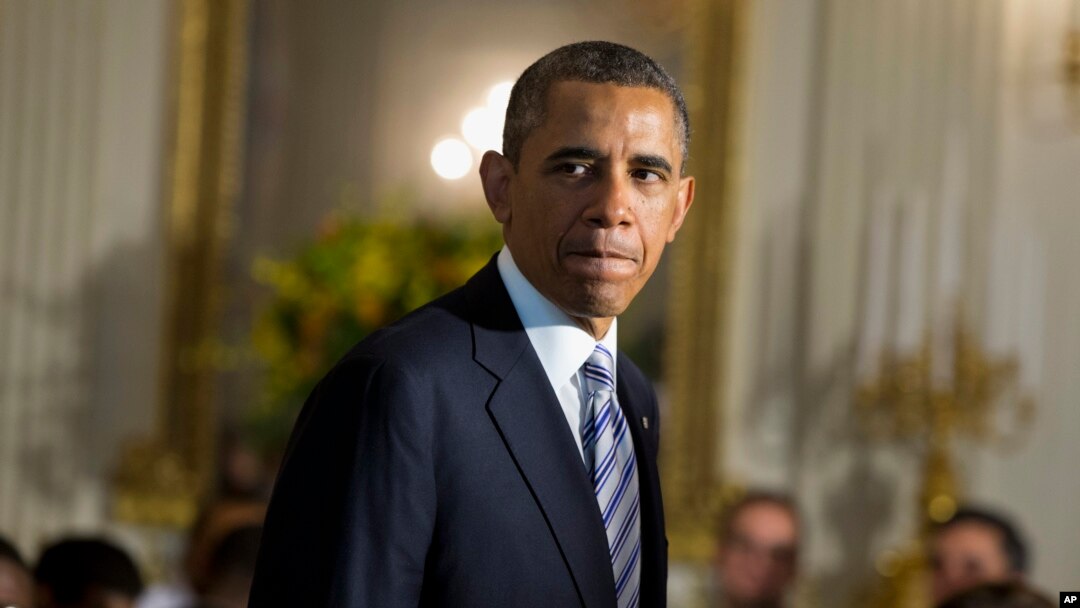U.S. President Barack Obama will face difficult talks with Russian President Vladimir Putin next week after his decision to arm Syrian rebels.
White House officials say the decision is "already finalized" and will not be changed by his upcoming meeting with fellow heads of the Group of Eight leading industrialized nations in Northern Ireland.
The United States is increasing military aid to the Syrian rebels after determining that President Bashar al-Assad's government has used chemical weapons during the nation's civil war.
What is Sarin?
President Obama's deputy national security adviser, Ben Rhodes, told reporters Friday the U.S. has a "broad range of evidence" associated with multiple incidents of chemical weapons use, including nerve gas.
But Syria's foreign ministry said Friday the U.S. accusation - stemming from an intelligence report - is based on "fabricated information," and dismissed the claim as "lies."
Russian Foreign Minister Sergei Lavrov echoed Syria's sentiments in a phone conversation with his U.S. counterpart, saying the U.S. accusations were "not supported by trustworthy facts."
U.S. Secretary of State John Kerry told Lavrov in the phone call Friday that it is in the interests of both the U.S. and Russia to restore Syria to a stable situation. He added that the Syrian government should allow U.N. investigators into Syria, and that Russia should support this effort.
U.N. Secretary-General Ban Ki-moon said Friday there can be no certainty of chemical weapons use in Syria without an investigation on the ground. He said there is no military solution to the war and that increasing arms on either side "would not be helpful."
The two-year conflict has cost Syria more than 90,000 lives, though Ban said Friday there are indications the actual death toll could be "well above that."
The White House has reiterated President Obama's view that chemical weapons cross a "red line" and necessitate more U.S. involvement in the war.
Many of the United States' European allies have so far reacted supportively to the chemical weapons assessment.
White House officials say the decision is "already finalized" and will not be changed by his upcoming meeting with fellow heads of the Group of Eight leading industrialized nations in Northern Ireland.
The United States is increasing military aid to the Syrian rebels after determining that President Bashar al-Assad's government has used chemical weapons during the nation's civil war.
What is Sarin?
What is Sarin?
- Man-made nerve agent originally developed as a pesticide
- Possibly used during Iraq-Iran war
- Used in 1995 Tokyo subway attack
- Highly toxic, odorless, tasteless, colorless liquid
- Exposure can be by inhalation, ingestion and skin absorption
- People can recover with treatment from mild or moderate exposure
But Syria's foreign ministry said Friday the U.S. accusation - stemming from an intelligence report - is based on "fabricated information," and dismissed the claim as "lies."
Russian Foreign Minister Sergei Lavrov echoed Syria's sentiments in a phone conversation with his U.S. counterpart, saying the U.S. accusations were "not supported by trustworthy facts."
U.S. Secretary of State John Kerry told Lavrov in the phone call Friday that it is in the interests of both the U.S. and Russia to restore Syria to a stable situation. He added that the Syrian government should allow U.N. investigators into Syria, and that Russia should support this effort.
U.N. Secretary-General Ban Ki-moon said Friday there can be no certainty of chemical weapons use in Syria without an investigation on the ground. He said there is no military solution to the war and that increasing arms on either side "would not be helpful."
The two-year conflict has cost Syria more than 90,000 lives, though Ban said Friday there are indications the actual death toll could be "well above that."
The White House has reiterated President Obama's view that chemical weapons cross a "red line" and necessitate more U.S. involvement in the war.
Many of the United States' European allies have so far reacted supportively to the chemical weapons assessment.


